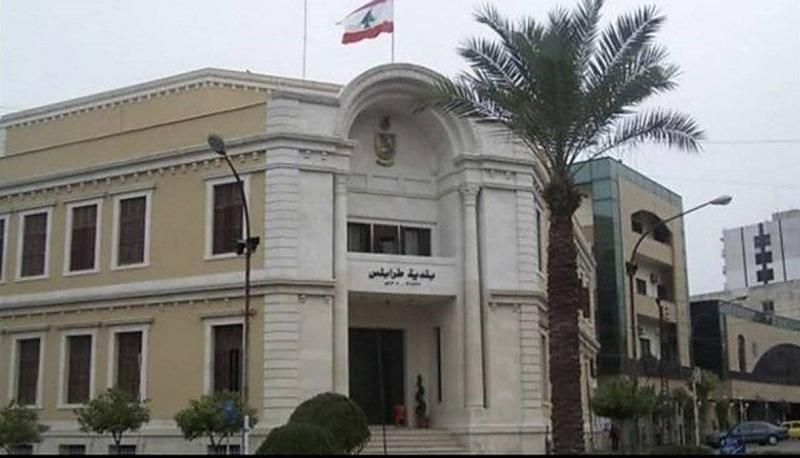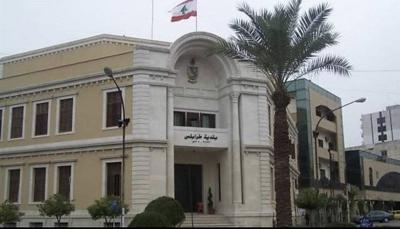The factional disputes occurring in some major municipalities, such as Beirut and Tripoli, have recently dominated the headlines. This is, of course, not surprising but rather a reflection of the political conflicts taking place at a higher level. However, who said that municipal problems stop at this point? All municipalities have had their elections postponed since the municipal elections in May; some have been newly created while others are paralyzed. Some municipalities have been dissolved, while others simmer quietly beneath the surface. But above all, let’s agree to alleviate our concerns: the vacancy and the postponement of deadlines reign supreme at all levels. Municipalities are living in a state of limbo.
According to legal provisions and statistics, let’s examine the current state of municipalities, particularly those that have been dissolved. Currently, there are 1,055 municipal councils consisting of 12,474 members, but only 944 of them are still active and at risk of being suspended, alongside 84 councils that are entirely dissolved and are being managed by the mayors or governors. Furthermore, there are 27 newly established councils after the 2016 elections, which are also being directed by these officials due to the lack of municipal elections to this day. Al-Ghandouriya, Hosn al-Rafqa, Jeb Jenin, Baq’aat ‘Ishqout, Mirouba, Al-Aqabeh, Fanar, Aramoun, Al-Miya wa Miya, Bashamoun, and Roum are all examples of municipalities that have been dissolved since 2016, and the list goes on. When is a municipality considered dissolved? Who is responsible for managing its affairs in this case? Are the president and members exempt from their responsibilities, and how can their operations be reactivated, especially in light of the delayed electoral process? Moreover, what is the role of the Ministry of Interior and Municipalities (yes, municipalities), and what are the implications of all this on the already eroding developmental situation?
When we consult former Interior Minister Ziad Baroud, he clarifies to "Nidaa al-Watan" the criteria or conditions under which the Ministry of Interior agrees to dissolve a municipality. Baroud explained how the municipal law issued by legislative decree No. 118 in 1977 organizes the cases of vacancies in a municipal council, stating: "If at least a quarter of the positions in a council are vacant, elections are held for these vacant positions for the remaining term within two months from the date of the last vacancy. In this case, we face partial elections without dissolving the council." What if the council loses half or more of its members? "In this case, it is automatically considered dissolved. Here, the Interior Minister must announce the dissolution by virtue of a decision issued within a week at most from the date of notifying the ministry. Otherwise, their silence is considered an implicit decision of dissolution (according to Article 23). If the council is dissolved, a new council must be elected within two months from the date of the dissolution decision," Baroud responds.
Lawyer Michel Fallah, an expert in municipal management, informs us about who is responsible for the municipal council's works until a new council is elected. The duties are undertaken by the Assistant Mayor or the head of the original department in the district, the governor, or the general secretary at the governorate's center, according to Article 24 of the law, by a decision from the Minister of Interior. Consequently, the governor or the assistant mayor holds the authority to manage the dissolved municipality, and all routine decisions or actions are signed by the governor. Fallah adds: "Given that the responsibilities placed on the governor's shoulders, both formally and institutionally, are already significant, how much more burdensome will it be if we add the responsibility of managing dissolved municipalities? They will become captives, with no authority from their dissolved council over them, and no sufficient time for the governor to manage them effectively and diligently." What are the implications of this situation on meeting urgent needs and demands?
**Distribution of Responsibilities**
Approximately 30% of municipal councils in Lebanon suffer from vacancies, and just under 10% are completely dissolved. While these are notable figures, the local elections have still been bypassed, leaving the mentioned municipalities under the supervision of governors or assistant mayors, who often manage more than one municipality in some regions. "This has led to a decline in municipal and developmental work and stability in a significant number of municipalities, as the governors cannot follow up daily with the duties originally entrusted to them. We can only imagine what will happen if the number of municipalities resigning in protest against the extension, funding loss, or for any other reason increases," Fallah comments.
We inquire, given the situation, about the responsibilities and obligations of the dissolved municipality's president and its members toward the residents and the region. Fallah points out that "the president of the municipal council, or his deputy, or any member in charge of executive authority is legally considered responsible for misconduct and is subject to disciplinary penalties if he fails to fulfill the obligations imposed on him by the regulations and laws, even after being warned, if this leads to harm to the municipality's interests." The disciplinary penalties range from "warning and reprimand," decided by the Interior Minister, to "suspension from duty" for a period not exceeding one year, decided by a special disciplinary committee. Moreover, the disciplinary prosecution does not prevent prosecution before the competent civil and criminal courts, when necessary.
It is also worth noting that these penalties and others are halted when the municipal council is dissolved. Members and the president who lose their authority to make and execute decisions remain subject to prosecution covering only the period preceding the date of the dissolution announcement.
**Elections are Set... Unless**
To the essential question: what if municipal elections do not happen on the newly scheduled date next May? In response, Baroud rules out a second postponement, clarifying: "It is known that the original date for municipal elections was in May 2022, and it was postponed due to the coincidence with parliamentary elections. The elections will take place unless extraordinary circumstances arise that justify further postponement, which remains under the oversight of the Constitutional Council." Furthermore, councils elected in 2016 must continue to perform their duties, while dissolved councils will also continue to be under the supervision of the governor or assistant mayor.
We return to Fallah, who considers that in order to avoid another postponement of the elections, "the so-called ‘objective’ political forces, as well as civil society organizations in all their forms, the media, and other active entities in shaping public opinion, need to work seriously and intensively to pressure for the elections to take place and reject any form of postponement no matter the reasons, as conducting the elections remains the optimal choice on all levels.”
The electoral entitlement, in addition to its implications in terms of respecting constitutional deadlines, reflects respect for the democratic process by revealing people’s desire for change and accountability. Additionally, it contributes to the revitalization of municipal developmental work across all regions, as it provides the necessary support to restore order in the country. Not to mention the potential liberation of municipalities in general, and particularly the "fat" ones, from the grasp of political forces that were rejected in the last parliamentary elections, according to Fallah.
**Extension and Its Issues**
However, as of now, the picture of municipal elections remains murky, like many other pending deadlines. Can the country endure a vacuum on top of another vacuum? “The solution lies always in applying the law and respecting deadlines without bypassing the popular mandate that should not be overlooked upon the expiration of an elected council’s term,” according to Baroud. Municipalities are a fundamental nerve in the decentralized framework and thus must be reinforced, not the opposite. While their legal powers are extensive, their revenues are modest, and it is no exaggeration to say that they have become almost nonexistent since the outbreak of the country's recent crises. Moreover, we must not overlook the overwhelming administrative oversight. From this standpoint, Baroud emphasizes the need to enact a law for expanded administrative decentralization and provide municipalities with revenues that allow them to perform their duties.
On his part, Fallah sees that delaying the municipal elections for a year has imposed significant pressures on municipal councils as well as on the governors and assistant mayors managing the affairs of the dissolved municipalities. "The extension creates administrative issues in municipalities that set projects for six years. Additionally, it has become difficult to establish projects for another year due to the pressing financial circumstances. The postponement serves as a renewal of inactivity or an extension of the basic work within the capabilities allowed by the timeframe, as municipalities operate according to short- and long-term annual plans."
Are there other negative repercussions? Of course. Under the weight of dismal economic conditions, a lack of resources emerges. Municipalities thus will not be able to draw a work strategy for a full year leading to elections. This weakness will also affect municipalities morally, transitioning from an elected council to an extended one. Decisions will not be resolute, nor will they carry significant weight with the people. In other words, these are complications that will rain down from all directions.
Another point raised by Fallah is the disregard for the extension of the wishes of mayors, many of whom have merely coped with the past six years of their council and do not wish to extend their responsibilities. He questioned: "As in existing councils that operate on a rotating basis (each lasts three years) between two families or parties, who will take over the municipality's affairs in the additional year?"
**What Next?**
In light of the legal impossibility of revising the extension, it seems that the number of dissolved municipal councils will gradually increase due to disputes caused by the extension. The recent procedure has revealed gaps and problems that have plagued the work of the extended councils.
As there are no guarantees against the dissolution of municipal councils should the same disputes persist within them, in addition to the financial paralysis they are experiencing due to incorrect collection practices from municipalities within their jurisdiction (where councils resort to "piecework" collection), Fallah believes that what currently governs councils is an understanding of the difficult conditions the townspeople face, on one hand, and a means of wooing them as voters for successive terms in the municipality, on the other hand.
There is more than just financial and economic bankruptcy at play. Fallah confirms that some municipalities are also suffering from administrative paralysis and severe division among their members, a situation that hampers their functioning and necessitates quick solutions. Political interventions in some municipalities have also disrupted their operations and contributed to "binding" their leaders and rendering them incapable of action.
Finally, the extensive collaboration between some municipal councils and international organizations and donor entities—compensating for the lack of state capability to provide adequate funding for numerous projects needed by towns and cities—gives those councils a breath of resilience. However, this is merely a patchwork solution and does not eliminate the lingering question: Will next May bring resolutions in the form of municipal elections, or will the ramifications of the decisive deadlines, or failure to meet them altogether, further complicate the situation?




